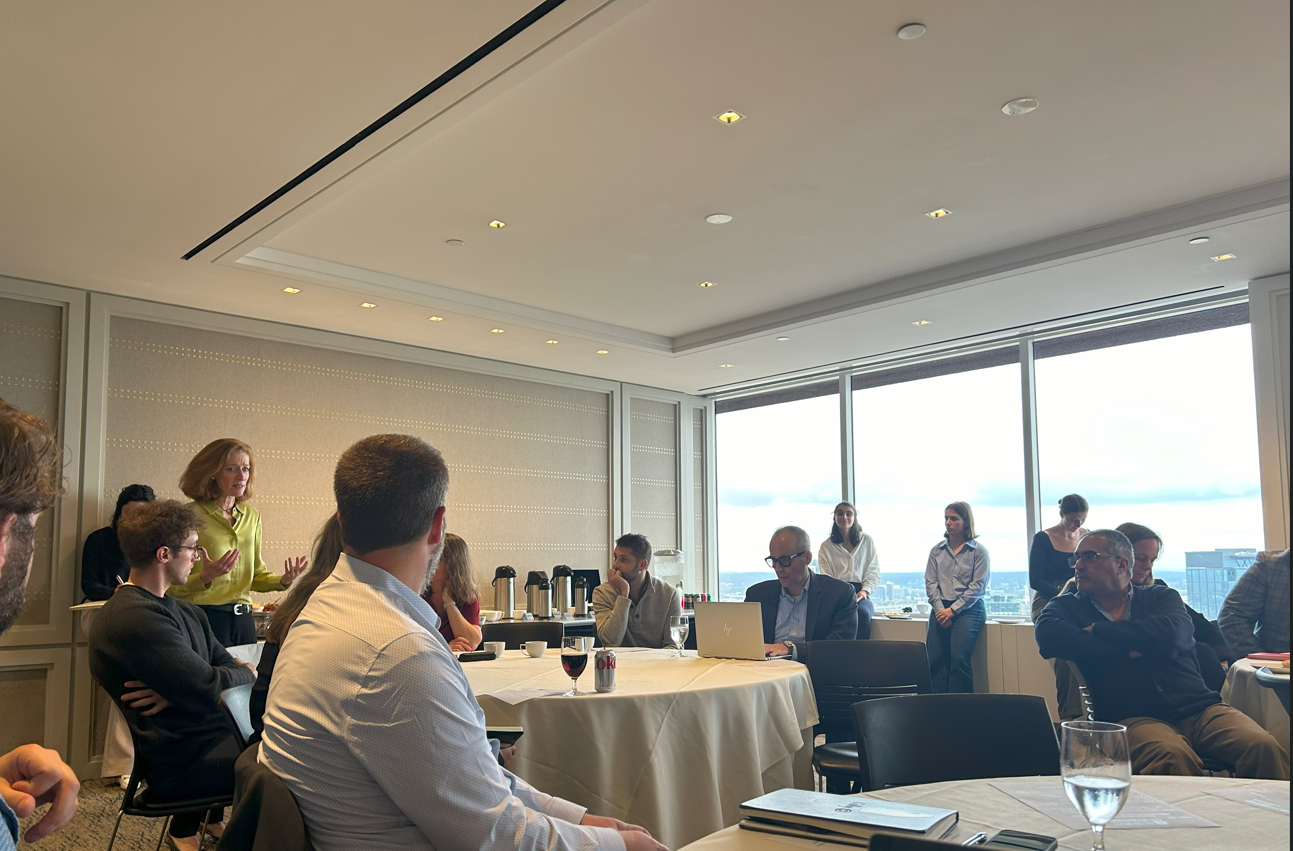Transforming the Energy Ecosystem: CCC’s Third Higher Education Roundtable
Melissa Lavinson, Executive Director of the Office of Energy Transformation, addresses the magnitude of the change management effort Massachusetts must undertake in moving to leadership in the global energy transformation.
It was great to join with such an impressive group of MA sustainability and workforce development leaders last week at the third Commonwealth Climate Coalition Higher Ed Roundtable.
As Melissa Lavinson, Executive Director of the MA Office of Energy Transformation, noted during the meeting, we are undertaking a massive change management effort in transforming the energy ecosystem. While technology and process are crucial, supporting people in developing the necessary skills to address the energy challenge is the hardest piece.
Key takeaways from the discussion include:
Workforce development is critical for the energy transition in MA, particularly in the electrical and solar industries. There's a significant demand for skilled workers, with companies like Revision Energy, (who joined us at the Oct. 1st meeting, hoping to hire hundreds of new employees (incl. 200 electricians) immediately.
Paid apprenticeship programs in the "earn & learn" model (like Revision's) are a key pathway for development, combining on-the-job training with formal education. Under the IRA, there are funds available for such programs for certain size energy transition projects that pay prevailing wage.
Collaboration between educational institutions, industry partners, and the State is vital. Higher ed stressed the importance of collaboration, especially in training and upskilling workers to address decarbonization efforts for campus buildings.
Barriers to entry for workers, particularly transportation and childcare, are recurring concerns. Wraparound support services are necessary; MIT Job Connector shared the important work they are doing to provide childcare and transportation options for job seekers.
ACT (formerly NECEC) will continue this important work of convening training providers, building innovation pathways, and connecting colleges to industry programs, with a regional focus.
Thanks to everyone who joined us, from educational institutions, including Franklin Cummings Tech, Northeastern, MIT, and Harvard, industry partners, the State of MA, and workforce development-focused organizations like ACT and the MIT Job Connector.
This meeting was the third convening of the Higher Ed Roundtable series, which has been, by participant request, focused on how higher ed, public sector leaders, nonprofits, unions, and employers can improve MA workforce development for clean energy.
More details about our next Roundtable in December will be shared soon. We look forward to your continued participation as we work together towards MA's global leadership in the cleantech revolution.

